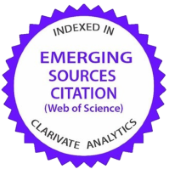Internationalization of Tourism Destinations: Networking systems management
DOI:
https://doi.org/10.29036/jots.v12i23.285Keywords:
Internationalization, tourism destinations, systems innovation, territory, product, governance, DMOsAbstract
This paper aims to fill a gap in the existing research about the internationalization of tourism destinations through a systematic review of the literature focusing on publications presented between 2007 and 2017. The research followed the assumptions of the non-probabilistic snowball sampling technique. In addition, the computer programs VosViewer, for bibliometric analysis, and NVivo 10, for content analysis were used. Tourism destinations’ internationalization is a combination of: (i) integration of organizational interest with stakeholders’ interests; (ii) understanding that what moves these elements are endogenous and exogenous business opportunities; (iii) integrating external opportunities in the destination by aligning them with its territorial identity; (iv) achieving coherence between the previous three components through the implementation of a governance model; (v) a governance model that facilitates the destination’s organization by conciliating interests, resources and opportunities; (vi) and the DMOs that coordinate the dynamics generated between the elements of this system, making it possible to organize the supply following its territorial identity. The internationalization process of tourism destinations highlights factors different from the internationalization of companies. In the first scenario, politics, planning, and territory internationalization strategies should target different kinds of reflections according to the level of intervention (local, regional, national or international). In the second, it is essential that supply is aware of investment opportunities abroad, financial packages to support businesses, innovation, and entrepreneurship. The current period exposed the fragility of the tourism sector and how external threats can influence it. Thinking about the internationalization of tourism destinations shows how important it is to organize the tourism offer in accordance with the challenges the sector faces, at the same time as explaining the role of DMOs. Until now, this theme has been mainly studied from the perspective of demand, creating a gap in the existing knowledge about the organizational systems.
Downloads
Downloads
Published
Issue
Section
License
Copyright (c) 2021 Journal of Tourism and Services

This work is licensed under a Creative Commons Attribution-NonCommercial-NoDerivatives 4.0 International License.
Journal of Tourism and Services (ISSN 1804-5650) is published by the Center for International Scientific Research of VŠO and VŠPP in cooperation with the following partners:
- Juraj Dobrila University of Pula, Faculty of Economics and Tourism, Croatia
- School of Business and Administration of the Polytechnic Institute of Setúbal, Portugal
- Szent István University, Faculty of Economics and Social Sciences, Hungary
- Pan-European University, Faculty of Business, Prague, Czech Republic
- Pan-European University, Faculty of Entrepreneurship and Law, Prague, Czech Republic
- University of Debrecen Faculty of Economics and Business, Hungary
- University of Zilina, Faculty of Operation and Economics of Transport and Communications, Slovakia
The publisher provides a free access policy to the Journal of Tourism and Services.





